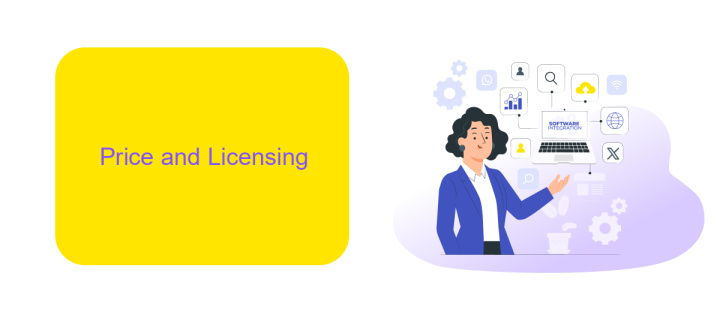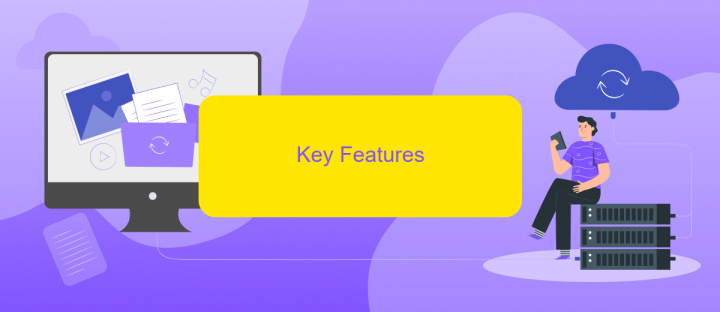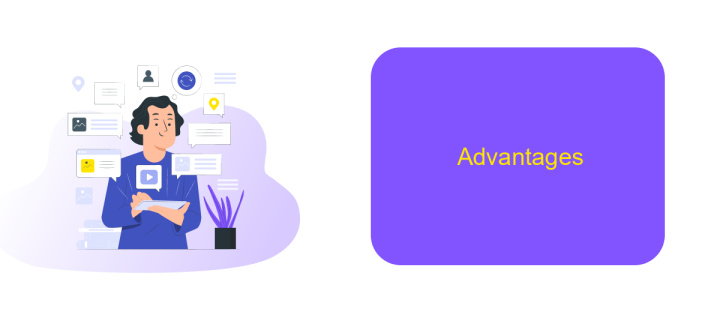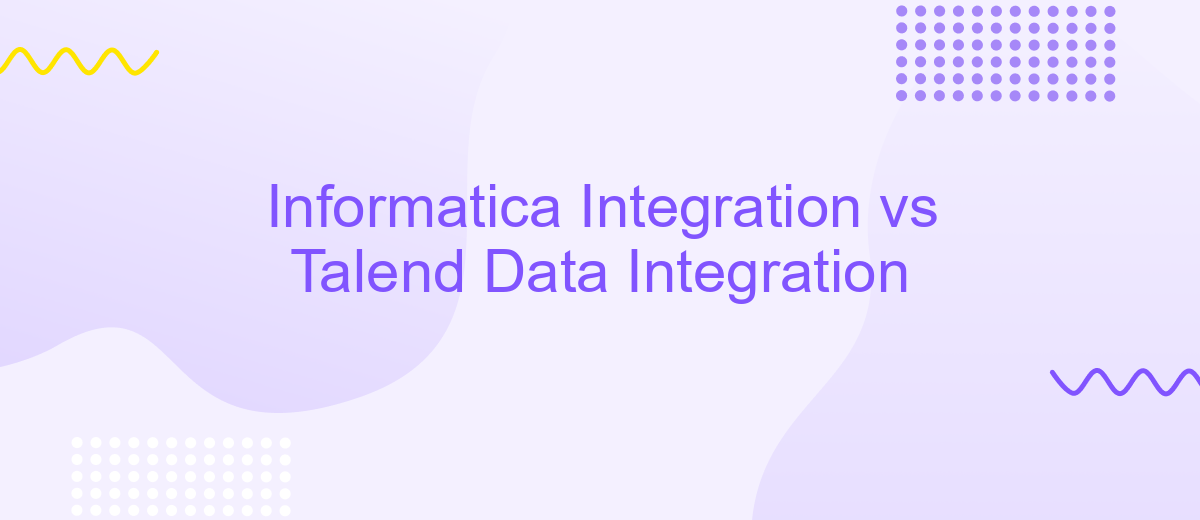Informatica Integration vs Talend Data Integration
In the rapidly evolving landscape of data management, choosing the right integration tool is crucial for businesses aiming to harness the full potential of their data. This article delves into a comparative analysis of Informatica Integration and Talend Data Integration, exploring their features, capabilities, and performance to help organizations make an informed decision tailored to their specific needs.
Introduction
In the ever-evolving landscape of data management, choosing the right integration tool is crucial for businesses aiming to streamline their operations and make data-driven decisions. Informatica Integration and Talend Data Integration are two prominent solutions that offer robust capabilities for data integration, transformation, and management. Each platform has its own strengths and unique features, making the decision process challenging for organizations.
- Informatica Integration: Known for its high performance and scalability, it offers extensive data transformation capabilities and a user-friendly interface.
- Talend Data Integration: An open-source solution that provides flexibility, a rich set of connectors, and strong community support.
Both tools are designed to handle complex data integration tasks, but the choice between them often depends on specific business needs and technical requirements. Additionally, services like ApiX-Drive can further enhance integration processes by providing seamless connectivity and automation, making it easier for businesses to integrate various applications and data sources efficiently.
Price and Licensing

When comparing Informatica Integration and Talend Data Integration, pricing and licensing are key considerations. Informatica offers a subscription-based model, with costs varying depending on the features and scale of deployment. It provides flexible licensing options, including cloud, on-premises, and hybrid deployments. Informatica’s pricing can be higher due to its extensive features and support, making it suitable for larger enterprises looking for comprehensive data integration solutions.
On the other hand, Talend Data Integration offers a more transparent pricing structure. Talend provides both open-source and subscription-based models, making it accessible for small to medium-sized businesses. The open-source version is free, but it comes with limited features. For advanced features and enterprise support, Talend offers a subscription-based model. Additionally, services like ApiX-Drive can be integrated with both Informatica and Talend to streamline the setup and management of data integrations, providing a cost-effective solution for businesses of all sizes.
Key Features

When comparing Informatica Integration and Talend Data Integration, it is essential to understand the key features that set them apart. Both platforms offer robust solutions for data integration, but they cater to different needs and preferences.
- Scalability: Informatica provides high scalability, making it suitable for large enterprises with extensive data integration needs. Talend, on the other hand, offers flexible scaling options that can adapt to smaller or growing businesses.
- Ease of Use: Talend is known for its user-friendly interface and open-source nature, which allows for easier customization and community support. Informatica, while powerful, may require more specialized knowledge to operate effectively.
- Integration Capabilities: Both platforms support a wide range of data sources and formats. However, Informatica excels in handling complex data transformations and large volumes of data. Talend, with its open-source approach, offers a broad range of connectors and components.
- Real-Time Data Processing: Informatica provides robust real-time data processing capabilities, making it ideal for time-sensitive applications. Talend also supports real-time processing but may require additional configuration and resources.
- Cloud Integration: Both platforms offer cloud integration capabilities. Informatica has a strong presence in the cloud market with its Informatica Intelligent Cloud Services (IICS). Talend integrates well with cloud platforms like AWS, Azure, and Google Cloud.
In conclusion, choosing between Informatica Integration and Talend Data Integration depends on your specific needs. Informatica is suitable for large enterprises requiring high scalability and robust real-time data processing. Talend, with its user-friendly interface and open-source flexibility, is ideal for businesses looking for customizable and cost-effective solutions. Additionally, services like ApiX-Drive can further enhance integration capabilities by providing seamless connectivity between various applications and data sources.
Advantages

Informatica Integration and Talend Data Integration both offer robust solutions for data management, but each has its unique advantages. Informatica is known for its high performance and scalability, making it ideal for large enterprises with complex data needs. On the other hand, Talend is recognized for its open-source nature and flexibility, which is particularly beneficial for businesses looking for cost-effective solutions.
One of the standout features of Informatica is its extensive suite of tools that support a wide range of data integration tasks. It provides excellent data quality and governance capabilities, ensuring that the data is accurate and reliable. Talend, however, excels in its ease of use and rapid deployment, allowing users to get up and running quickly without extensive training.
- Informatica offers superior performance and scalability.
- Talend provides flexibility and cost-effectiveness with its open-source platform.
- Informatica ensures high data quality and governance.
- Talend allows for quick deployment and ease of use.
When it comes to integrating with other services, both platforms can benefit from tools like ApiX-Drive. This service simplifies the process of connecting various applications and automating workflows, enhancing the overall efficiency of data integration projects. By leveraging ApiX-Drive, businesses can streamline their operations and achieve better synchronization across different systems.
Use Cases
Informatica Integration is ideal for large enterprises needing robust, scalable solutions for complex data environments. It excels in handling high volumes of data, real-time processing, and extensive data transformation tasks. Companies in sectors like finance, healthcare, and retail often leverage Informatica for its advanced data governance and security features, ensuring compliance with industry standards and regulations. Additionally, Informatica's ability to integrate with a wide range of data sources makes it a versatile choice for organizations with diverse data ecosystems.
On the other hand, Talend Data Integration is well-suited for organizations seeking a cost-effective, open-source solution. It is particularly beneficial for small to medium-sized businesses or startups that require flexible and easy-to-use tools. Talend offers a user-friendly interface and seamless integration with various cloud platforms, making it a preferred choice for companies looking to adopt cloud-based data solutions. For businesses needing quick and efficient integration setups, services like ApiX-Drive can further streamline the process, allowing for automated data workflows and reducing the manual effort involved in data integration tasks.
FAQ
What are the key differences between Informatica Integration and Talend Data Integration?
Which tool is more suitable for large-scale enterprise environments?
How do Informatica and Talend handle cloud integration?
What are the cost implications of using Informatica vs. Talend?
Can I use third-party services for automating and setting up integrations with Informatica and Talend?
Routine tasks take a lot of time from employees? Do they burn out, do not have enough working day for the main duties and important things? Do you understand that the only way out of this situation in modern realities is automation? Try Apix-Drive for free and make sure that the online connector in 5 minutes of setting up integration will remove a significant part of the routine from your life and free up time for you and your employees.

